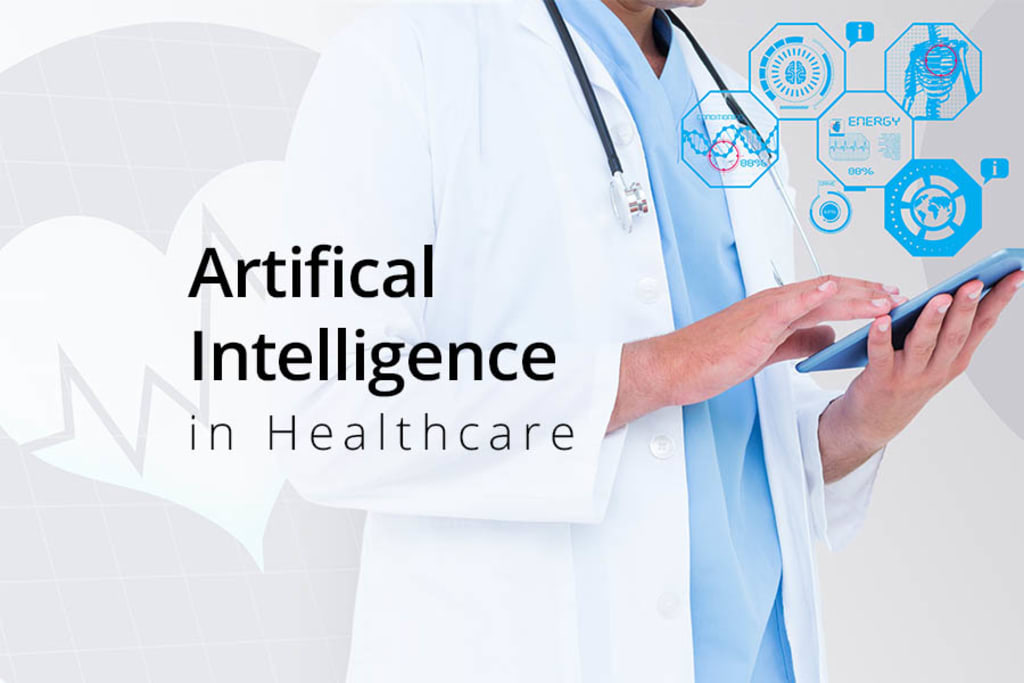AI in Healthcare
Transforming Patient Care and Medical Diagnostics

In recent years, the healthcare industry has witnessed a revolutionary transformation through the integration of Artificial Intelligence (AI) technologies. AI's ability to analyze vast amounts of data and recognize patterns with incredible accuracy has led to groundbreaking advancements in patient care and medical diagnostics. This article explores how AI is reshaping the landscape of healthcare, improving diagnoses, personalizing treatments, and ultimately enhancing patient outcomes.
AI-Driven Diagnostics
One of the most significant impacts of AI in healthcare is its role in diagnostics. Traditional diagnostic methods often rely on human expertise, which may be subject to human error or limitations. AI systems, on the other hand, can analyze medical data from various sources, such as imaging scans, lab results, and patient records, with unprecedented precision.
AI-powered diagnostic tools, like computer-aided detection (CAD) and pattern recognition algorithms, can swiftly detect abnormalities in medical images, such as X-rays, MRIs, and CT scans. This not only expedites the diagnostic process but also improves the accuracy of identifying diseases like cancer, cardiovascular issues, and neurological disorders in their early stages.
Personalized Treatment Plans
Medical treatment is no longer a one-size-fits-all approach, thanks to AI's ability to personalize care. AI algorithms can analyze a patient's genetic makeup, medical history, lifestyle, and treatment response data to create tailored treatment plans. This level of personalization ensures that patients receive the most effective therapies while minimizing adverse reactions to medications.
Moreover, AI-driven predictive modeling helps healthcare providers anticipate disease progression and identify potential complications, enabling them to intervene early and improve patient outcomes significantly.
Enhancing Patient Care and Monitoring
AI-powered virtual health assistants are becoming increasingly popular as tools to enhance patient care and support. These intelligent chatbots can engage with patients, providing them with valuable information, appointment reminders, and answering their medical queries promptly. Virtual health assistants not only improve patient satisfaction but also alleviate the burden on healthcare staff, allowing them to focus on more critical tasks.
AI-driven wearables and remote patient monitoring devices offer continuous data tracking, allowing healthcare professionals to monitor patients' health in real-time. These devices can alert medical teams to any irregularities, empowering them to intervene promptly and prevent potential emergencies.
Streamlining Administrative Tasks
The integration of AI in healthcare extends beyond patient care to streamline administrative tasks. AI-powered systems can automate billing processes, schedule appointments, manage electronic health records, and optimize resource allocation in healthcare facilities. By automating mundane tasks, healthcare providers can allocate more time and attention to patient care, resulting in improved overall efficiency.
Challenges and Ethical Considerations
While AI presents numerous opportunities in healthcare, it also comes with challenges and ethical considerations. Data privacy and security are paramount, given the sensitive nature of patient information. Ensuring that AI systems comply with relevant regulations and maintain patient confidentiality is crucial to building trust and fostering widespread adoption.
Another concern is the potential for AI to exacerbate existing healthcare disparities. The availability of AI-driven technologies may be limited in underserved communities, creating a divide in access to advanced medical care. Healthcare providers must address this issue to ensure AI's benefits are accessible to all.
Conclusion
Artificial Intelligence has emerged as a transformative force in the healthcare industry, reshaping patient care and medical diagnostics. From improving accuracy in diagnoses to personalizing treatment plans and streamlining administrative tasks, AI offers a wide array of benefits that enhance healthcare outcomes for patients worldwide.
As the technology continues to advance, it is essential to strike a balance between embracing the potential of AI and addressing the ethical considerations and challenges that come with its integration. By doing so, we can harness the full power of AI to create a healthier, more equitable future for all.






Comments
There are no comments for this story
Be the first to respond and start the conversation.